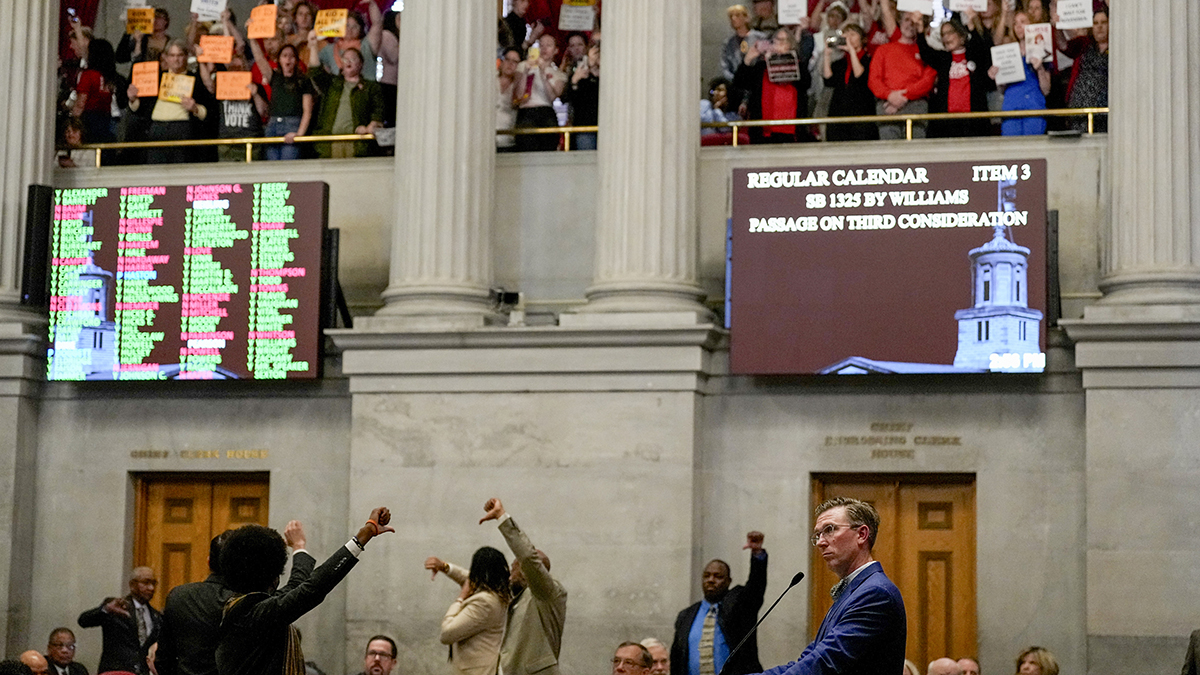In the ouster of the University of Missouri's president, leaders of student groups on other campuses dealing with racial strife see an opening to press their own university administrators for better treatment of black students.
At schools including Michigan and Yale, students say the protests that led to the resignation of Missouri President Tim Wolfe are emboldening them to take a harder line.
"It shows administrations that this is something that they need to take seriously," said Eshe Sherley, a senior at Yale University, where more than 1,000 people joined a march this week in solidarity with minorities. "It also shows students that the work they're doing isn't in vain."
The issues vary from one campus to another, but many students say there's a common thread among campuses that can be inhospitable to students from racial minorities. Some are calling for more diversity among faculty and more spending on scholarships for minorities, as well as resources such as cultural centers.
"You can't just bring students in; you've got to have faculty and staff members in key positions and you've got to be current," said Roger Pulliam, senior faculty adviser of the National Black Student Union, based in Whitewater, Wisconsin.
The Missouri case is bringing attention to issues that have been simmering on other campuses for months or longer amid a national discussion of race relations and treatment of blacks in America.
Student activists say it also demonstrated the power of a united protest.
U.S. & World
Ravyn Brooks, a junior at Missouri State University, is among students who confronted administrators earlier this year over issues including faculty diversity and the planning of a diversity center they heard about through the school's mostly white student government. When she heard about the Missouri protests, Brooks wrote an online post calling students across the country to demonstrate in support.
"This event on the MU campus shows other students how much power we actually have when we come together as a campus," Brooks said. "There's power in solidarity, there's power in a unified voice, and it exposes systemic racism in higher education."
Black students at the University of Michigan, who make up only about 4 percent of the student body, have pressured the administration to boost diversity. If it doesn't happen, students said, they'll take a lesson from Missouri.
"We will look to organize like Missouri students if the administration is not keeping their end of the bargain of what they promised," said Capri'Nara Kendall, a senior at Michigan. "We're not afraid to organize."
Students at more than 20 colleges are planning solidarity demonstrations this week, including at Harvard, Columbia and Syracuse universities. Inspired by the Missouri case, students at Loyola University in Chicago and other schools are preparing a list of demands for their administrators.
Hundreds of students walked out of class on Wednesday at Smith College in Northampton, Massachusetts, and at New York's Ithaca College, to protest racial injustice on campus and to support minority students across the country. Black alumni at Georgia Tech are crafting a letter warning the university president to stay committed to diversity.
At the University of Missouri, weeks of protests reached a boiling point this week when the football team announced it would refuse to play until the school's president, Tim Wolfe, quit. Protesters accused Wolfe of ignoring racist attacks against students, amid other alleged missteps. He resigned on Monday.
Universities have vowed to address racially-charged issues, holding forums on diversity and pledging to review what changes might be necessary.
Yale President Peter Salovey said Wednesday the administration is developing initiatives focused on improving the campus climate and fostering diversity at the Ivy League school. Students there took to the streets after an Oct. 28 university email warning about racially insensitive Halloween costumes prompted a professor to complain that Yale and other campuses were becoming "places of censure and prohibition."



